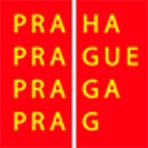Higher Vocational School of Economic Studies, Grammar School, Secondary Technical School of Food Technology, and Secondary Vocational School of Natural Sciences and Veterinary Medicine (VOŠ, G, SPŠ a SOŠ) Podskalská, Praha 2
Praha 2 offers a broad range of study programmes which are based on the long history of the school and its
experience. We are proud of the school's tradition which dates back to 1868 when it was founded as a brewing
school.
Today, we are focused on providing modern vocational and general education that responds to market needs.
Our goal is to prepare our graduates for successful careers in the professional world. Not only the students of
the Gymnasium study further at colleges and universities.
Our students are motivated to lifelong learning, and are guided to perceive the needs of employers, with an
emphasis on the practical application of acquired knowledge and skills.
International co-operation is important: we carry out many international activities and co-operate with a number
of foreign organisations. Companies and schools, in which students carry out their internships, represent
important partners of the school. Within general education, the school organises students’ exchange visits to
European countries, during which students and teachers improve their skills, including communication in foreign
languages. When working on projects, we pay high attention to the personal and social development of students,
their understanding of the multicultural world, we support them in sustainable behaviour with respect to ecology.
Our aim is not only to prepare students for the European labour market, but also to equip them with skills that
are crucial for their future careers.
Students are offered several specialisations:
Technology of Beer, Wine, Spirits, and Non-Alcoholic Beverages
Graduates are employed mainly in breweries and malting plants. Graduates are qualified to work not only in
production departments, but also in control operations (chemical and microbiological laboratories) and in economic
departments.
All graduates are able to continue studying at any higher vocational school or university. The University of
Chemistry and Technology Prague provides our graduates with further studies in this field.
Graduates of this field of study are demanded also in hospital laboratories and research institutes carrying out
chemical, biological, biotechnological and microbiological analyses, or dealing with environmental protection,
ecology, water management, etc. Graduates also work in laboratories of quality inspections, food processing plants
and agricultural supply. They also find employment in companies involved in production and sale of sanitation
products, hygiene, and also in plants where fermentation processes are the basis of production (production of
feed, antibiotics, enzymes, organic acids, etc.).
Practical training takes place in the school laboratories and in plants linked to the field, especially in
breweries and malting plants. Within the course of their studies, students
also undergo several practices in the school microbreweries. In the school laboratories, they carry out chemical
and microbiological examination on the incoming raw materials, intermediate products and the final product.
The field is taught in both full-time and part-time forms.
Flour Processing, Bakery, and Confectionery Technology
Graduates find employment mainly in bakeries, confectioneries, and companies producing long-lasting baked goods.
Upon graduation, students are qualified to work not only in production departments but also in quality control
(chemical and microbiological laboratories) and economic departments. All graduates can continue their studies at
any higher vocational school and university, including the University of Chemistry and Technology, Prague, where
they can continue studying this field. The study programme is designed to ensure that its graduates find
employment in both large-scale and smaller enterprises.
Practical training in this field takes place in the school’s laboratories and in bakeries that supply Prague. The
programme was introduced in cooperation with these bakeries, whose technologists participate in teaching
specialised subjects and overseeing practical training.
The field is taught in both full-time and part-time forms.
Meat Processing and Meat Products Technology
Graduates find favourable employment in production and commercial companies in practically all sectors of the
food industry, especially in meat processing, poultry, fish processing, veterinary services, laboratories, food
retail, restaurants, hotels, and inspection bodies. After graduation, they can work as food technology
specialists, quality controllers, managers, or entrepreneurs in the agro-food industry. Graduates are fully
qualified to run their own business under the Trade Licensing Act in all areas of the field.
All graduates can continue their studies at any higher vocational school and university, including the University
of Chemistry and Technology, Prague, where they can continue studying this field.
Practical training in this field takes place in the school’s workshops and related enterprises.
The field is taught in a full-time form.
Ecology and Environmental Protection
The aim of the programme is to provide secondary vocational education and train professionals in nature and
environmental protection. Theoretical and practical education is focused on ecology, environmental protection
technology, and landscape conservation. The curriculum builds on knowledge from natural science subjects,
expanding understanding of relationships between organisms and their environment, as well as human-environment
interactions, and includes comprehensive knowledge
necessary for active environmental protection. The programme also includes legal education in environmental law,
covering the legal system of the Czech Republic and current regulations on environmental protection. Another key
area is economics, which equips students with the ability to navigate economic phenomena and processes in a market
economy. Practical activities in the environmental field serve to synthesise theoretical knowledge and develop
skills in thinking and working methods.
Graduates can apply their qualifications in the public administration sector or in production and service sectors.
In public administration, opportunities include environmental departments in municipalities, towns, and districts,
inspection activities related to water, air, and waste management, protected landscape areas, national parks, and
nature reserves.
In the production and services sector, opportunities include environmental departments in industrial companies,
laboratories focused on environmental pollution, waste management, and land reclamation.
The field is taught in a full-time form.
Food Analysis
Graduates of this field find employment in all control laboratories dealing with chemical, biological, and
microbiological analysis of raw materials, intermediates, working environments, and finished products. Graduates
are in demand not only in food production facilities but also in the fat industry, research institutes, quality
inspection bodies, hospitals, agriculture, and organisations involved in ecology and biotechnology.
Every graduate can continue their studies at any higher vocational school and university, including the University
of Chemistry and Technology, Prague, to further expand the knowledge acquired during their studies.
The field is taught in a full-time form.
Natural Sciences Lyceum
Graduates of the Natural Sciences Lyceum are primarily prepared for university-level studies and for programmes
at higher vocational schools in fields such as biology, chemistry, environmental science, food technology, and
agriculture. Graduates are equipped with the knowledge, skills, and practices necessary not only for tertiary
education but also for lifelong learning and success in the labour market. If graduates do not continue their
studies, they can find employment in laboratory and operational roles, as well as in administrative and management
positions, due to the general and specialised knowledge they have acquired in fields like ecology, chemistry,
geography, ICT, and food technology.
The field is taught in a full-time form.
Veterinary Science
The Veterinary Science programme provides a full secondary education with a final school-leaving examination and
trains professionals in veterinary care. The
programme is designed to meet labour market demand for specialists in this sector. In the final year, students can
choose to specialise in hippology or cynology.
Graduates of this field find employment as laboratory technicians, veterinary assistants, veterinary technicians,
insemination technicians, in pharmaceutical companies, breeding companies, public administration (environmental
and ecological departments), zoos, dog breeding and hippotherapy, sanitation services, the pet food and food
industry, or as self-employed individuals in related fields.
Graduates may also continue their studies at universities, particularly in veterinary and agricultural fields, but
also in other natural sciences.
The field is taught in a full-time form.
Grammar School (with a focus on economics)
The goal of education in this field is to equip students with key competencies and general knowledge at the
secondary school level, preparing them primarily for university education and other forms of tertiary education,
as well as for professional specialisation and civic life, particularly in economics-focused university studies.
The grammar school creates a motivating study environment where students have ample opportunities to master key
competencies, such as acquiring essential knowledge, skills, attitudes, and values, and being able to apply them
in personal, civic, and professional life. The purpose of education at the grammar school is not to pass on the
largest amount of specific facts and data, but to provide a systematic and balanced structure of knowledge, teach
students to place information in a meaningful context of life practice, and motivate them to continue developing
their knowledge and skills throughout their lives. This requires applying teaching methods and approaches that
support creative thinking, responsiveness, and student independence, while utilising differentiated teaching
methods, new organisational forms, and more.
The general aim of the educational programme is to prepare graduates to be competitive in the labour market and
able to respond to changing labour market conditions. Elective subjects offer students the opportunity to deepen
their knowledge in economic subjects, one of which they will be required to take as part of their final
school-leaving examination.
Emphasis is placed on ensuring cooperation in mastering modern learning methods (e.g., principles of cooperative
learning, social-communicative methods such as dialogue, and critical thinking methods). The approach to teaching
should promote greater versatility, flexibility, creativity, reflection, modification, and application of
educational strategies, with regard to lifelong learning principles, which minimise risks in the labour market.
The field is taught in a full-time form.
Contact
Mgr. Hedvika Škapová, skapova@podskalska.cz
Deputy Headteacher for the Secondary School
Coordinator of International Cooperation








